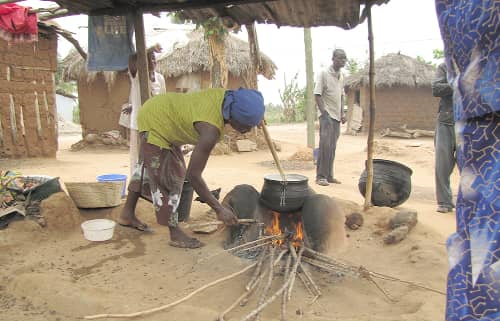
22.1 million Ghanaians rely on harmful cooking sources
An energy expert has called for a clear strategy to help in the attainment of set targets for improved cookstove (ICS) in the country.
An Energy Advisor at the SNV Netherlands Development Organisation,
"We can't just set targets and leave them aloof. Concrete and deliberate actions ought to be taken to
The V4C is an evidence-based advocacy programme implemented in partnership with the International Food and Policy Research Institute (IFPRI) and the Dutch Ministry of Foreign Affairs for the period of 2016-2020.
Advertisement
Focused on four themes, namely; renewable energy; food and nutrition security; water, sanitation and hygiene (WASH), it seeks to build vibrant civil society
Thus, the energy component focused on increased access to affordable, efficient and sustainable energy solutions with
Need for clean cooking
About 21.7
Experts say relying on traditional cooking methods such as firewood have serious health, environmental and economic consequences. A total of four million deaths annually globally and over 13000 in Ghana through exposure to Hospital-Acquired Pneumonia causing acute, pneumonia, lower respiratory infections, lung cancer, heart disease, chronic obstructive pulmonary disease
Challenges
Again, manufacturers have expressed concerns about high import duties on ICS manufacturing materials which will add to their cost and households, perhaps they may not be able to afford.
He said for manufacturers to be motivated to increase quality to the level of S&L, there ought to be market for them.
"We need to create awareness of the technologies available for ICS and the consequences of relying on the traditional cooking fuels to
The government seeks to attain a 50
In the interim,
"Much as we want to promote LPG, if the government decides to make LPG free to everyone in terms of cylinders, how many households will be able to bear the recurrent cost of filling their gas regularly, coupled with

